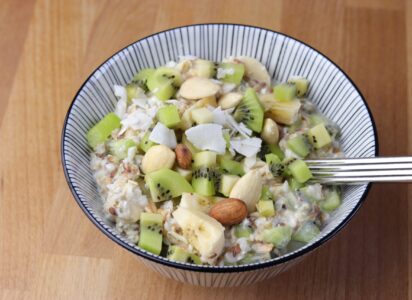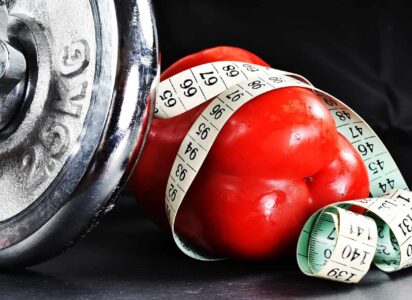If you thought protein was just for bodybuilders then think again! The real benefits of a higher protein diet have nothing to do with sculpting the perfect physique, it’s the long-term health benefits that should be our focus.
Think of a high protein diet and the mind tends to jump to muscle-bound, bicep-kissing men, flexing their physiques. The explosion of ‘fitspiration’ images on social media has positioned protein as the nutrient of the body beautiful. Moreover, the recent explosion of protein products on the market, from Protein Mars bars to protein beer use the inherent health halo of protein to market every product under the sun to consumers. While a higher protein diet can certainly support muscle growth, weight loss and athletic performance, there’s a rather overlooked population group for whom a higher protein diet could be a vital component in healthy ageing.
What does protein actually do?
We use the protein we eat to support the growth and maintenance of our muscles and bones, as well as to make skin, hair, nails and vital components of our metabolism. Protein is an essential nutrient! But how much we need at different stages of our life is debated. The role of protein in muscle health is critical for those who are looking to develop their muscle strength eg. those involved in power sports; muscle endurance, such as distance athletes (cyclists, runners, triathletes and so on); and those looking to maintain their muscle.
Muscle maintenance is critical for two population groups – the over 50s and those who are dieting. We know that as we age we lose muscle mass and strength at a rate of 3-8% every decade from around the age of 30, which accelerates from around 50 years old. Age-related loss of muscle mass and strength (or Sarcopenia to give it its medical term) can creep up on us and, at first, might not be a cause for alarm. You may find you can lift slightly less heavy items or find it harder to balance than you once did. But as the muscle loss progresses into older age, those slight compromises are amplified. Resistance exercise can help to mitigate these losses of muscle mass and strength, more so if we give our bodies sufficient protein.
So protein is important. But how much is enough?
The Department of Health advises that all adults, regardless of age, need around 50g of protein a day. That can be found easily in a normal mixed diet, even a vegetarian or vegan diet. Arguably, though, this is only applicable if you are relatively inactive and are under the age of 50. Plenty of evidence supports eating more protein if you’re older, active or trying to lose weight. Older adults (50+) Recent research suggests that older adults, aged 50 and above, should aim to eat 1.2-1.5g of protein per kilo bodyweight a day (compared with current Department of Health guidelines which are 0.8g/kg body weight/d). This is equivalent to 84-105g of protein a day if you weigh 70kg. Obviously, if you weigh more or less, you’ll need more or less protein.
So why the higher figure? Well, as we age, we simply become less efficient at building and restoring our muscles after eating protein foods. For active individuals, the International Society of Sports Nutrition (ISSN) recommends that you need somewhere between 1.4-2g of protein per kilo body weight a day, spread in roughly equal doses throughout the day. If you do mostly endurance exercise, aim at the lower end of the range and if you’re more into resistance training then aim a bit higher. In practical terms, if you weigh 70kg then you should aim for 98-140g protein a day or up to 30-40g per meal, max, depending upon how many meals you eat.
OK, so where do I find protein?
Meat, fish, dairy foods and eggs are great sources of protein and these animal-derived foods have been shown to deliver the highest protein quality. This means they contain all the essential protein components that the body needs (these components are known as amino acids, of which 9 are essential and cannot be made by the body so must be consumed as part of the diet). They’re also more digestible than plant-based protein sources. Plant-based proteins can be found in beans, lentils, soy products like tofu and tempeh, nuts, seeds (quinoa is actually a seed and not a grain) and in small amounts in bread, pasta and other grains. With the exception of quinoa and soya, most plant-based proteins do not individually provide all 9 essential amino acids.
Can I eat all my protein in one go?
In the same way that active individuals are advised to spread their protein intake evenly throughout the day, ideally, you’d aim to eat around 25-35g protein at each meal (although this will depend on your body weight and how many meals a day you eat). Typically, many of us will eat toast or cereal for breakfast, so we won’t get much in the way of protein. A lunch of soup or pasta is again, going to be relatively low in protein and it’s often not until the evening that we eat much in the way of any protein foods. This is less than ideal, although some studies suggest that when you eat your protein is less important than the total amount.
You can find a collection of recipes on AF Connect Online.
Protein supplements
Protein supplements that support a healthy balanced diet are a quick and easy way to help hit your daily protein intake requirements, in a smoothie, or a shake. While the vast number of protein powders on the market can make the task of choosing one daunting, it also means there are probably several options that will be a good fit. Tempo® is an active nutrition brand dedicated to older adults who need additional protein in their daily diet. Tempo® Active Nutrition combines a high-quality protein powder with a unique blend of 27 essential vitamins and minerals designed to support and maintain normal muscles and bones, to reduce the loss of bone mineral density and boost vitality.
You might want to consider a protein supplement if you:
- Are active and in your mid-forties to 50+
- Want to start each day with a nutritional boost
- Want to reduce the loss of bone density (peri/post-menopausal women)
- Want to maintain normal bones
- Want to maintain muscle mass and strength
- Want to relieve tiredness and fatigue
Did you know we have a member benefit available to you on AF Connect Online? Click here to save 15% on Tempo Active Nutrition products.






